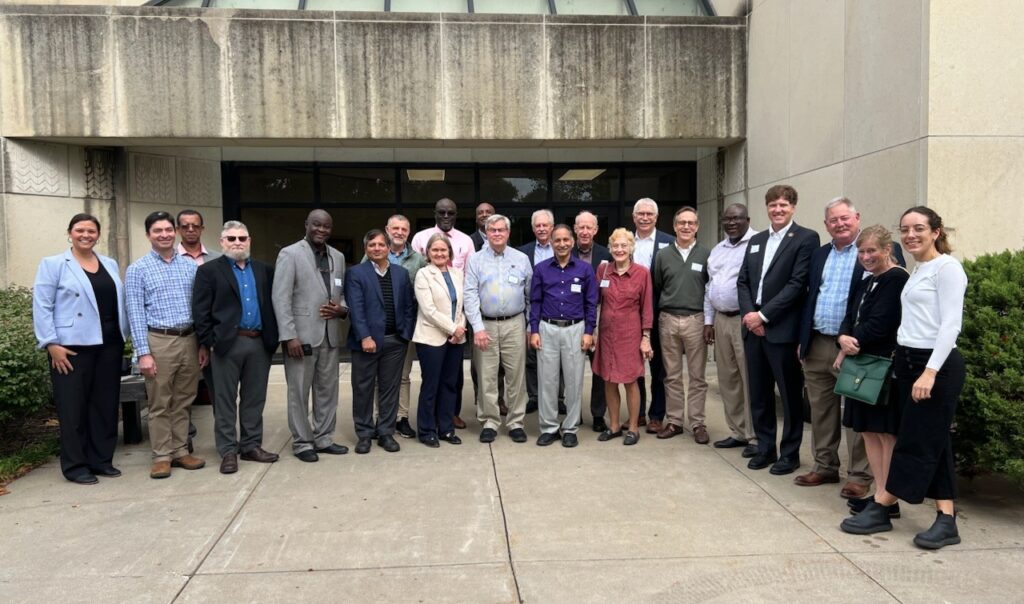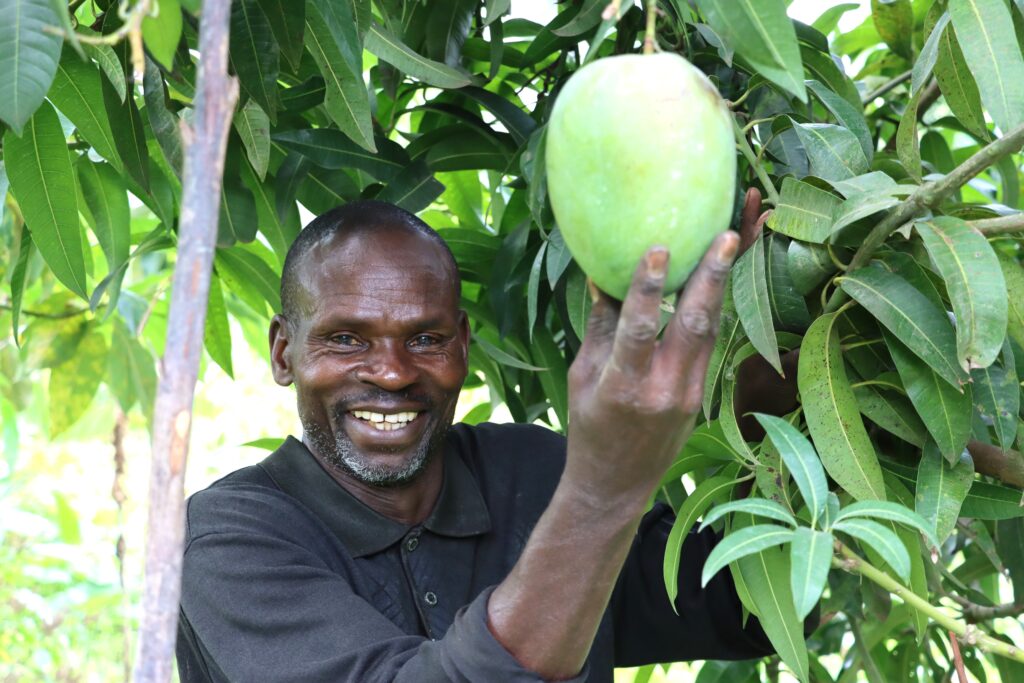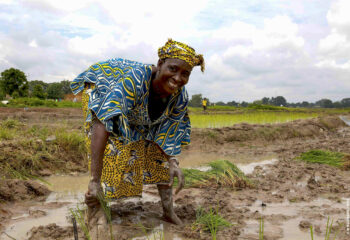
IFDC recently collaborated with Kansas State University (KSU) to co-organize a strategic engagement workshop between October 13-15 with the African Agricultural Research, Innovation, and Education Institutions (AARIEI), a collaborative institution led by the Forum for Agricultural Research in Africa (FARA).
This milestone event provided the opportunity to forge transcontinental partnerships to accelerate the implementation of the Soil Initiative for Africa (SIA) and the Africa Fertilizer and Soil Health Action Plan (AFSH-AP).
The workshop, held at the KSU Agronomy Complex in Manhattan, Kansas, not only drew leading organizations but also brought together land-grant universities in the United States with deep expertise in agronomy, soil management, and agricultural innovation. These universities have long been models of science- and education-driven agricultural transformation.
“These universities offer tremendous experience in linking research, teaching, and extension that will be instrumental in delivery of the plans.”
Zachary Stewart, IFDC Vice President of Research
The event served as a bridge between this legacy of land-grant innovation and Africa’s urgent soil health agenda, as defined by the AFSH-AP and the SIA. Discussions focused on building a joint project to leverage collective expertise and resources for soil health improvement, fertilizer production and management, and sustainable agricultural productivity.
IFDC joined fellow institutions, including FARA, the African Forum for Agricultural Advisory Services (AFAAS), the Regional Universities Forum for Capacity Building in Agriculture (RUFORUM), Sasakawa Africa Association (SAA), and AGRA, in presenting priorities and initiatives aimed at advancing soil health across the African continent. U.S. land-grant universities also shared insights on their research, technologies, and partnership opportunities.
Since IFDC operates at the intersection of science, partnership, and implementation, it is uniquely positioned to bring together these various research institutions and universities to translate academic knowledge into farmer-level impact.
IFDC Vice President of Research Zachary Stewart explained, “IFDC is aligning global agricultural research and innovation with Africa’s soil health priorities through close coordination with FARA and U.S. universities to support the implementation of the Soil Initiative for Africa and the Africa Fertilizer and Soil Health Action Plan. These universities offer tremendous experience in linking research, teaching, and extension that will be instrumental in delivery of the plans.”
When organizations partner with U.S. universities, they unlock access to advanced digital soil mapping tools, agronomic data analytics, and innovative fertilizer efficiency technologies developed in the U.S. academic sector.
For example, KSU, a long-standing partner of IFDC, contributes its academic expertise and collaborative experience with the organization to advance sustainable agricultural systems. KSU’s integration of cutting-edge research complements IFDC’s on-the-ground implementation capacity, creating synergy that accelerates soil health restoration and fertilizer innovation in Africa.
Partnerships like this mark an important step to co-create sustainable pathways for soil restoration and food security.
Linking Africa’s agricultural innovation systems with the proven capacity of U.S. land-grant universities has the potential to make tangible progress in implementing the SIA and the AFSH-AP. Furthering these kinds of collaborations, as the strategic engagement workshop did, advances a shared goal of restoring soil health, improving food security, and strengthening resilience across the African continent.





